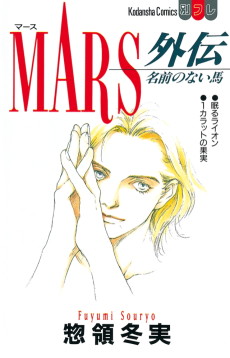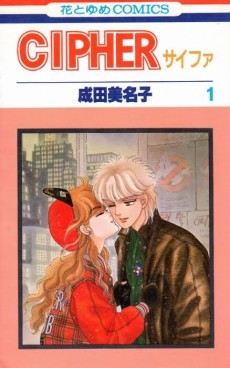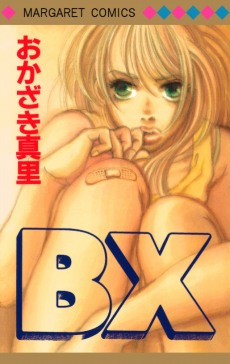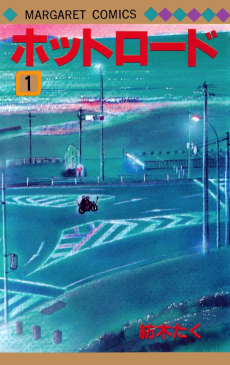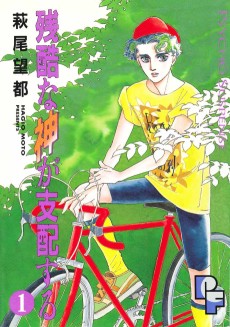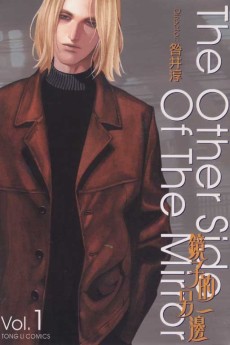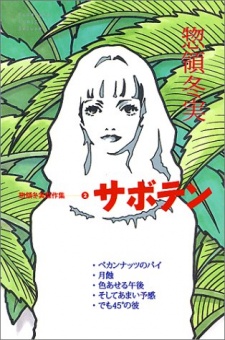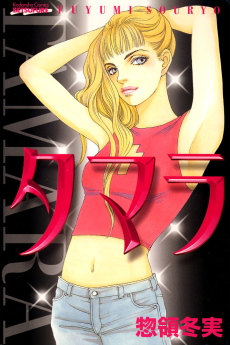MARS
STATUS
COMPLETE
VOLUMES
15
RELEASE
December 13, 2000
CHAPTERS
41
DESCRIPTION
Kira, a shy high school student, lives only for her art. Rei, an arrogant, rebellious and violent playboy, wears his delinquency like a badge of honor. They are exact opposites in every way, but when Kira sees Rei kissing a statue of Mars, she overcomes her fears and asks him to model for her. And, to everyone's surprise, Rei agrees.
(Source: Tokyopop)
CAST
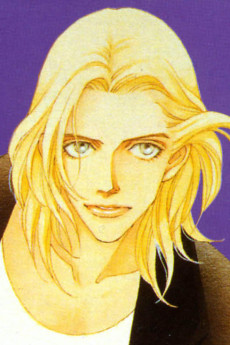
Rei Kashino
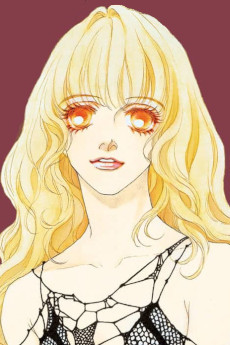
Kira Aso

Harumi Sugihara
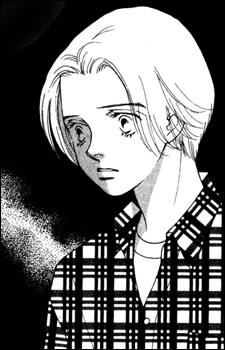
Sei Kashino

Tatsuya Kida
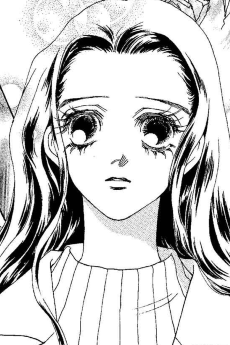
Shiori Sakurazawa
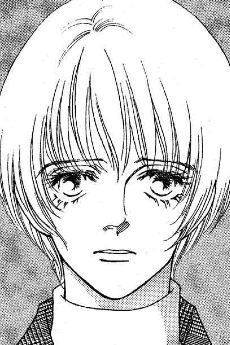
Masao Kirishima

Kurasawa

Takayuki Kashino
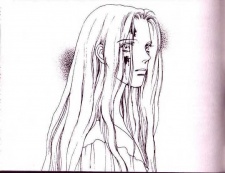
Shoko Kashino
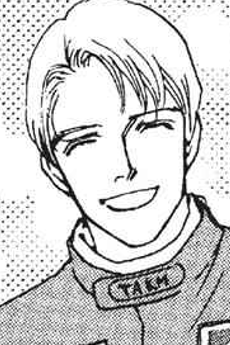
Akihiko Kashino
CHAPTERS
RELATED TO MARS
REVIEWS

BloomReviews
97/100Mars finds away to openly discuss many difficult issues in a captivating fashion.Continue on AniListAfter a chance meeting at a park, the reckless motorcycle racer Rei becomes drawn to the closed-off artist Kira. He finds out the next day that they're actually in the same class in high school and makes it a point to get close to her no matter how much she tries to push everyone else away. These star-crossed lovers come together to heal each other's deep wounds in a story packed full of drama, tragedy, and romance. From the mystery surrounding the death of Rei's twin brother to the twisted minds of students and adults that they meet, Mars finds away to openly discuss many difficult issues in a captivating fashion.
There's so much I want to talk about when it comes to this manga. I'm kind of disappointed I never picked this up until after it went out of print as it's quickly become one of my favorites. Mars obviously isn't perfect, and there's many scenes which I consider a product of the time it was written. But there are also a lot of things it does really well like: the discussion of mental illness in Japan (a place well-known to be very low ranking in that area), the meaning of family, youth's place and power in society, and the sacrifices you sometimes have to make for the people you love. All of this is wrapped up in a dazzling art style and panel layout that gives great emphasis to dramatic moments where it is needed the most.
I think the first thing I noticed about Mars was the art style. It simply captivated me with its wispy lines that added a sense of delicacy to the characters who were themselves delicate in their own ways, and its ability to change style to accommodate those tense and fast-paced moments on the race track with stunning detail and shading. Fuyumi Soryo knows how to balance the level of detail she puts into each panel to provide the best amount of impact for each scene. Her motorcycle racing scenes provide a tense contrast to the character's everyday moments to the point that you can feel the suspense surrounding the race just from the art. Not to mention that Soryo has a doubly hard time because Kira is an artist, so the look of her drawings had to be in some way different from the rest of the art of the manga itself. I definitely think she pulls this off beautifully. Even the basic composition of the panels lends to this overall aesthetic. There are many instances where the character's faces will fade into the background, leaving their eyes gazing over a scene. At other moments, full page splashes or double page spreads will draw our eyes and attention to moments of drama for the optimum emphasis. I think Soryo might be one of the few manga artists I've seen use full pages and spreads for her scenes almost to excess. Perhaps that is a product of the times with rising publishing costs forcing the cutting back of these moments, but it's very interesting nonetheless.

Gummyfail
100/100He picks her up, spinning. They're smiling. They’re yelling: LET IT ROT! I LOVE YOU!! IT’S DEAD ANYWAY!Continue on AniListMars gives you its thesis statement by volume 2.
My sister dropped out of highschool when she was sixteen. My mother was desperate to stop her from throwing away her life, but she didn’t know how to handle this. My father (my sister’s step-father) was in jail for distribution. Mama used a second mortgage to supplement her income from the nursing home. She was going to night classes to get her nursing degree. I was in first grade and obviously got some brain stuff about it and the foreclosure that happened four years later, but that doesnt have much to do with Mars. Let me rewind back to my Sister and Mama.
Mama felt that my Sister was throwing away her life by dropping out of school. Their arguments escalated to the point of my Sister leaving to live with a drug peddler that gave me his xbox (he was pretty nice ig). It was very dramatic and something I felt was just my sister’s recklessness for a long time. To finally draw the line, Mars is about teenagers ‘throwing their lives away’. By ‘throwing their lives away’ I mean Mars is about wounded children clinging to whatever they could trust. Why would you come to a school where the teachers disrespect you? Why would you live with a father that hurts you when you could live in squalor with someone who loves you? When you can’t imagine your future, it is exceedingly hard to convince yourself to invest in it. Adults that didn’t suffer like you will dismiss the trauma even if they don’t mean to. The adults that did could resent you as frequently as they try to extend help. What if you fall in love with someone that’s aching for the same stability as you? Will you maintain healthy boundaries? Maybe, but you can’t even imagine being alive in three years. Mars is written for, or at least with profound sympathy for girls like my sister, and the fuck-up lovers they lean on.
Anything past this point could be a spoiler
Mars is weird and loud and violent. Kira, in part, is the quiet girl that firmly anchors the manga in its shoujo demographic. She gets the boisterous popular boy’s attention, because he notices her hidden qualities. Rei (the boy) unbalances her emotionally and she falls in love. He reciprocates and then the first 2 of 15 volumes are over. Mars may be easy to reduce to some fairly common romance structures, but it distinguishes itself through its emotional volatility and its complex visual composition. Mars’s understanding of violence is that of arrhythmia and the disruption of patterns. This shows not only in Mar’s spontaneity, but in the paneling itself.
Souryou Fuyumi’s style is somewhat extreme. She’s perfectly fine sacrificing legibility for emotional effect and trusts the reader to sort out their own confusion about the sequence of events. Her experimentation focuses on techniques unique to comics. Her line art is mostly spare, but her use of screen tones is aggressively detailed. Her composition relies on the lines of characters and objects to interact noticeably with the lines of the panels themselves, and her sfx will stretch and distort, reaching across panels to signify motion or exaggerate the form and position of objects/people. I think this page might be a good way to explain what I mean:
This is not to say that she’s the only one that does all of these techniques, but she foregrounds them so aggressively and uses them so unconventionally that it feels like entirely different grammars than most manga and comics use. Its easy to see something this baroque losing sight of its core narrative for the sake of stylistic experimentation, but Mars’s broken, sometimes disorienting pages exist for the same reason so many war painters turn away from realism. Mars understands that honest depictions of violence should be necessarily unpleasant. It also understands that indulgent anatomical detail isn’t the only way to be honest about its violence.
Mars may feel like a teen drama directed by Martin Scorcese at times, but its core is still that warm, uneven shoujo romance. No matter how violent the story gets, everything circles back to Kira and Rei’s love. It's one that is full of codependency and insecurity, but neither Mars nor its characters are under the illusion that their attachments are strictly healthy. This bright, obsessive love is the only armor these children have and you don’t have to approve of their decisions to root for their happiness.
Ultimately, Mars is everything scary about shoujo and those things are important.

MangoBat
100/100MARS: The War On the Psyche of YouthContinue on AniListI’m coming off HOT from this Manga so I did want to gather my thoughts on this while it’s still fresh. Apologies if it’s less of a review and more of me waxing poetic for a few paragraphs. I also want to point out that Gummyfail has a wonderful review about the general feel of the manga. I kinda am going to talk specifically about the title and it’s themes. Point blank: I loved it and I think everyone should experience this classic Shoujo.
Spoilers ahead! 100%! I read this through my LIBRARY APP so please go through that or buy the digital version via Kodansha.
It’s funny I really was thinking the whole time when reading this - is the title relevant to the entire series? I’m not sure how many would agree with me but I really think it is and I think the overall meaning has to do with the battles these teens had to fight mentally with their situations.
Let’s go straight to the tide turning moment as described by basically any synopsis written for this story:

It’s Rei literally kissing the God of War - Mars. This also as the moment Kira decides her life is no longer going to be this stagnant pathway that she’s been following for a few years now. I’d like to point out this specific panel before the big moment:

“For someone so violent, he has a gentle face, Doesn’t he?” And though the audience is immediately making the connection with Mars and Rei. We can honestly apply that mentality to, I would say, 95% of the characters of this manga.
This story features some of the most morally gray characters I have come to know in a fictional universe. And yet - they are all also drawn very beautifully. Objectively they are all gorgeous. I don’t think this is the fault of the mangaka. It’s on purpose. Everyone has an outer shell that contains a stellar amount of darkness inside.
Looking right at Kira and Rei - These people have both had terrible and violent thoughts and have acted upon them. They’re also hyper aware of these thoughts and how morally terrible they are and have had major breakdowns about it in multiple chapters. A consistent theme is “I’m having terrible thoughts and that means I’m a terrible person. Right?”. The answer of course is not a resounding yes or no. These characters don’t need a yes or no but a “It’ll be ok - I’m here for you despite that”.

Kira and Rei love each other to a co-dependent level that might make the average reader uncomfortable. For that reader, I would like to point out that they are all that each other had. Kira/Rei have an understanding of each other’s inner turmoil to a degree that their best friends couldn’t even relate to. I’m not trying to excuse it - the story itself doesn’t do that either. But there are a couple of times in the manga where they both go “I can’t do this anymore” in reference to their relationship. The commonality in those moments tends to be that they had a misunderstanding of the other one’s feelings. This hurts either one of them on a deep level because they were not just misunderstanding - they were having a disconnect from the person that they thought they matched mentally.
Because mentally they were fighting a war against their own selves. Their own minds.
Kira had been silently suffering from the trauma of the sexual violence she had faced inside her own home. She had told absolutely NO ONE about it. Rei is the same way - He had such a terrible event happen to him (I’m not even going to point out a singular one. He has multiple!) that he also locked his mind away from his family and friends. He approached his trauma in the opposite way that Kira did which was through mind numbing partying. When they both started to peel away at each other's lives through their small conversations, their walls broke down and built somewhat of a bigger wall around them. It was no longer a war fought by separate countries. They became allies against the people they had marked as enemies.
 “I’ll protect you”
“I’ll protect you”Before even really knowing her and her intricacies, Rei offers to protect Kira. He doesn't even realize how far this promise would end up taking him. He does more than protect Kira from her initial bullies but he also protects her from her self depreciation and the people that would take advantage of her kindness. Rei is a soldier for Kira.
I want to emphasize, this theme is for ALL of the youth of this story. We have Tatsuya and Harumi - the two best friend characters. They have what Kira and Rei have at a much smaller scale - but still very important to themselves! They both had this unrequited love for Kira and Rei and they recognized that quickly. Because of that, they also reached for each other. And why? Because again - they had found someone to relieve them of their inner anguish.
We have the foil characters and I’m going to point out 3 - Sei, The Mother (Shoko), and Masao. All of them acted extremely to their violent thoughts. This led them to form, separately, these huge mental fortresses. None of these characters felt that they could express their dark thoughts with anyone in their peer group. Sei particularly didn’t think he could tell his own twin that he carried such violent designs in his head. Where we see a stray is in Masao who, although he had every similarity to Sei and Shoko, had his mind fortress breached by Rei. He reaches a breakthrough at the very last minute of the story. To me, Masao was the Sei that almost existed. He is the Sei if he had survived his fall and so it was only ever going to be Rei to break that curse he had on himself. I’m thinking this is why Masao’s crimes had a lot to do with pushing people over and falling. The war he was waging toppled all the people that surrounded him.
Going back to our main characters, I think what “winning” the war is to survive and do it smiling. The end of the manga shows they’re successful at that. They weren’t forced to follow down a road set by their parents. Up until that end, they rebelled against what every adult has asked them to do in every chapter. They’re absolutely disgusting to the common adult passer by but let’s look at that iconic panel one more time:
 “Let it rot!”
“Let it rot!”They are just so very endearing and their happiness is infectious. You can't help but root for them. They were deprived of entire SECTIONS of their youth due to the trauma thrust upon them by the adults who failed them. In rebuttal they’ve decided to deprive those same adults of their version of maturity. They give each other the chance to be themselves for the first time in a long time.

I’m going to cap off by talking about this little quote in the last volume of the manga:
 “People say lakes that are too clean don’t have much fish. As clean and still as they are, there’s no life force...”
“People say lakes that are too clean don’t have much fish. As clean and still as they are, there’s no life force...”These teens' lives are messy and complicated and that gave them a true sense of beauty. A life worth living for them comes with the struggle and drive to overcome hardship in all forms.
That is the beauty of Mars.
I feel like it goes without saying that the art itself is also wonderful and abstract. The paneling is amazing and truly driven by story and emotion. If you’ve read this far I’m hoping you’ve read the whole manga already. Congratulations! I hope you’re fuller for it just like I did. If not, I hope my rambling has enriched you to want to like more lol. I want to talk about it forever. It’s a beautiful capsule of 90’s shoujo manga and I cannot recommend it enough.
SIMILAR MANGAS YOU MAY LIKE
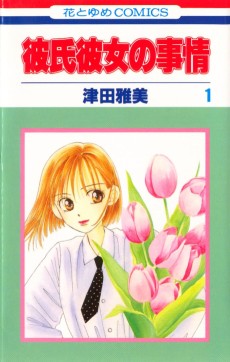 MANGA ComedyKareshi Kanojo no Jijou
MANGA ComedyKareshi Kanojo no Jijou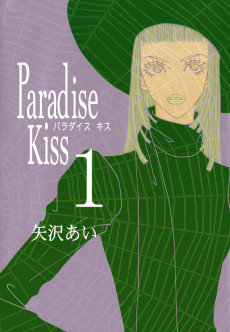 MANGA DramaParadise Kiss
MANGA DramaParadise Kiss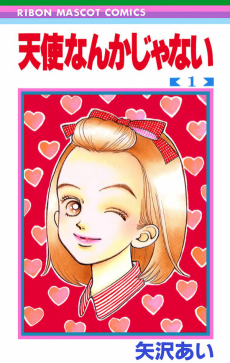 MANGA DramaTenshi Nanka Janai
MANGA DramaTenshi Nanka Janai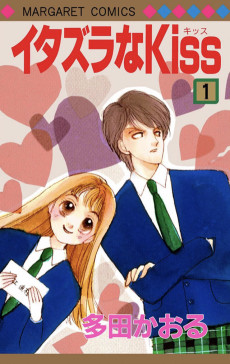 MANGA ComedyItazura na Kiss
MANGA ComedyItazura na Kiss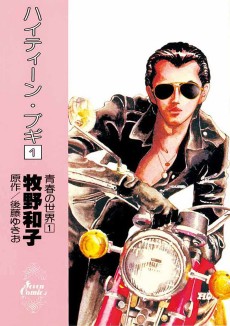 MANGA DramaHigh Teen Boogie
MANGA DramaHigh Teen Boogie
SCORE
- (4.1/5)
MORE INFO
Ended inDecember 13, 2000
Favorited by 762 Users


